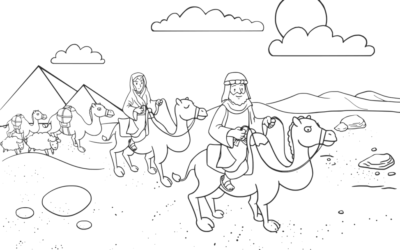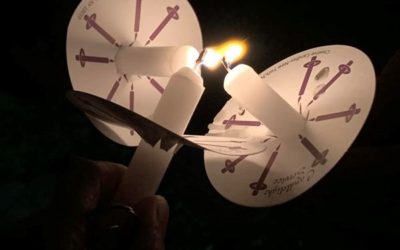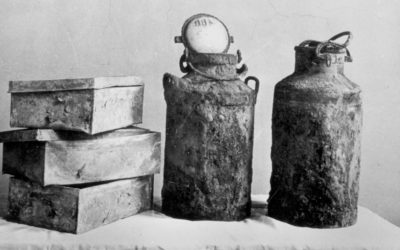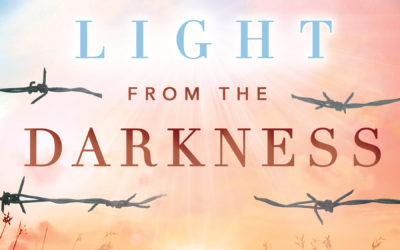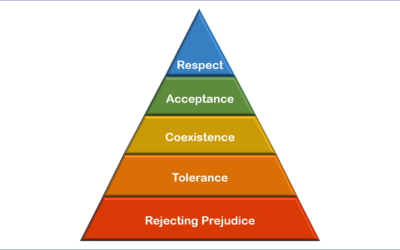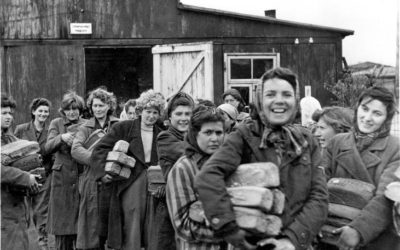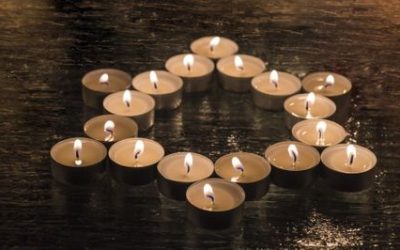Our Blog
Can we just color camels? Do we need to teach the hard stuff?
Can’t religious school be just about coloring camels from Torah portions? Do we have to teach the hard stuff? Many religious school education directors have fielded questions along these lines from concerned parents.
In classic Jewish fashion, the best answer is another question: How do we want our children to learn about the Holocaust? [redirects to the Times of Israel]
The fragile window is closing: Now WE must tell their stories
“Why do we need to teach this at all?” The Holocaust, she meant. Why do we need to teach the Holocaust in our religious school? [Redirects to the Times of Israel.]
‘Never Again’ means ‘Not Now!’
Have we built concentration camps on our border? As a Holocaust educator, I get asked this question a lot. It’s the wrong question. Asking whether they are concentration camps pushes us into extreme language that blocks conversation. [Redirects to the Times of Israel]
Can we just color camels? Do we need to teach the hard stuff?
Can’t religious school be just about coloring camels from Torah portions? Do we have to teach the hard stuff? Many religious school education directors have fielded questions along these lines from concerned parents.
In classic Jewish fashion, the best answer is another question: How do we want our children to learn about the Holocaust? [redirects to the Times of Israel]
The fragile window is closing: Now WE must tell their stories
“Why do we need to teach this at all?” The Holocaust, she meant. Why do we need to teach the Holocaust in our religious school? [Redirects to the Times of Israel.]
‘Never Again’ means ‘Not Now!’
Have we built concentration camps on our border? As a Holocaust educator, I get asked this question a lot. It’s the wrong question. Asking whether they are concentration camps pushes us into extreme language that blocks conversation. [Redirects to the Times of Israel]
Never Again Means Not Now: Looking Inward Edition
Anger. Sadness. Fear. Recognition. I would not presume to speak for the community of color. But these are some of the things I would be feeling if this were happening to the Jewish community. [Redirects to the Times of Israel]
Teaching the Holocaust through Story
How do we even begin to understand the experience of the Holocaust? How do we give our students insight into something we can barely comprehend? [Redirects to the Times of Israel]
When you meet a Nazi at a gas station
“I’ve got a Nazi Iron Cross tattooed on my chest.”
We were chatting with a stranger across an unmanned gas pump, along an isolated road in rural east Texas. He had asked us, conversationally, what church we attended. This is a common conversation starter in this part of the world and did not surprise us. We’re Jewish so we attend synagogue, we replied, equally casually. That was when he told us that he had a swastika on his chest. He said it matter-of-factly, but there was a challenge in his eyes.
[Redirects to the Times of Israel]
How Should We Memorialize the Holocaust?
The Holocaust is in danger of being remembered as just another historical atrocity inflicted on the Jewish people. Traditionally, Yom HaShoah—Holocaust Remembrance Day—has been a time to listen to survivors. Soon, we will no longer be able to sit and listen to them...
Coexist is not enough
Our holy books do not tell us to “tolerate the stranger.” They tell us to love them. [Redirects to the Times of Israel]
On the meaning of liberation, for the 75th anniversary of V-E day
Seventy-five years ago, death camps and labor camps were liberated one by one as the Allies marched across Europe. On May 8, 1945, the armed forces of Nazi Germany surrendered to the Allies. The Jews of Europe as a people were liberated, freed from their slavery and oppression. Free to emerge from hiding; free from the threat of arrest and murder; free to be Jews again. What does it mean to be liberated? [Redirects to the Times of Israel]
How will we remember the Holocaust when there are no survivors left? Ritual.
Today, another Holocaust survivor passed away. I do not know their name – perhaps you do. Unlike their families who were torn from them before their time, some of these people are dying of natural causes, and others, sadly, of COVID-19. We should not be surprised by this. The Holocaust ended 75 years ago. The youngest survivors are in their 80s.
Subscribe for More Great Articles!
Join our mailing list to get notified about new blogs and upcoming events.

